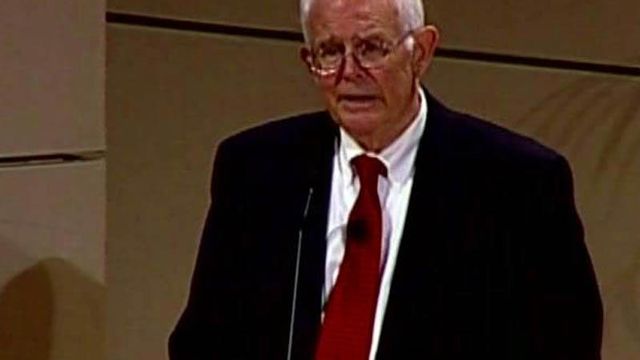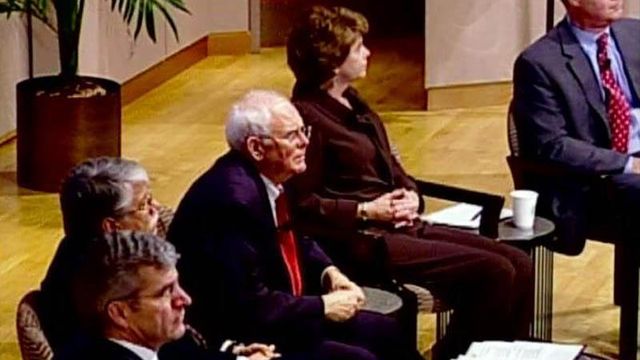Poll: Insurers, health care industry blamed for rising costs
A majority of North Carolina residents blame health insurers, hospitals and physicians for the rising cost of health care in the U.S., according to a poll released Tuesday.
Posted — UpdatedThe poll, which was sponsored by the North Carolina Dental Society, also found that people were split on the federal mandate that everyone have health coverage.
Public Policy Polling interviewed 508 people statewide March 5-7 for the survey, which has a margin of error of plus or minus 4.35 percentage points. The results were revealed during the "What the Health: Can We Survive Our Healthcare System?” forum, sponsored by talk show NC SPIN.
Thirty-one percent of respondents said insurance costs were the driving force behind rising health care costs, while 28 percent blamed higher doctor and hospital charges. Fourteen percent put the onus on people's poor lifestyle choices, and 8 percent pointed the finger at prescription drug costs.
On the lifestyle issue, more than a quarter of those surveyed said people's lack of knowledge on how to take better care of themselves leads to chronic problems like diabetes and high blood pressure. Other respondents were fairly evenly split among people not knowing the true cost of health care, being too lazy to practice self-care or not having to pay for their own care as reasons for not leading healthier lifestyles.
When asked whether they knew their own blood pressure, weight, body mass index, blood glucose level and cholesterol level, only 22 percent of those surveyed said they knew all of these key health indicators. Nearly half said they knew all of the figures, while 10 percent said they didn't know any and the rest said they knew one or two figures.
Forty-four percent of respondents said they thought people would improve their lifestyles if they knew they would feel better and live longer, while 27 percent said they would change if they knew their health costs would be lower. Sixteen percent said it would take punitive measures, like higher health costs, to force a lifestyle change.
Although a large chunk of health care costs are tied to end-of-life care, more than a third of respondents said people just don't get around to giving their families directions on how to handle those medical decisions. Another 28 percent said they don't know enough to make such plans, while 16 percent admitted they were in denial and didn't want to think about dying.
As for the national Patient Protection and Affordable Care Act, 37 percent of those surveyed said they fear government regulation and control of health care as the law takes effect. Another 22 percent said they fear health costs will continue to increase under the reform law, while 14 percent said they expect the quality of care to drop and 9 percent said they fear having less access to care.
Under the reform law, everyone is required to have health coverage by 2014. Forty-three percent of respondents said they feel the so-called individual mandate is necessary, while 28 percent said having insurance should be a personal decision and 20 percent believe this portion of the reform law is unconstitutional.
• Credits
Copyright 2024 by Capitol Broadcasting Company. All rights reserved. This material may not be published, broadcast, rewritten or redistributed.






